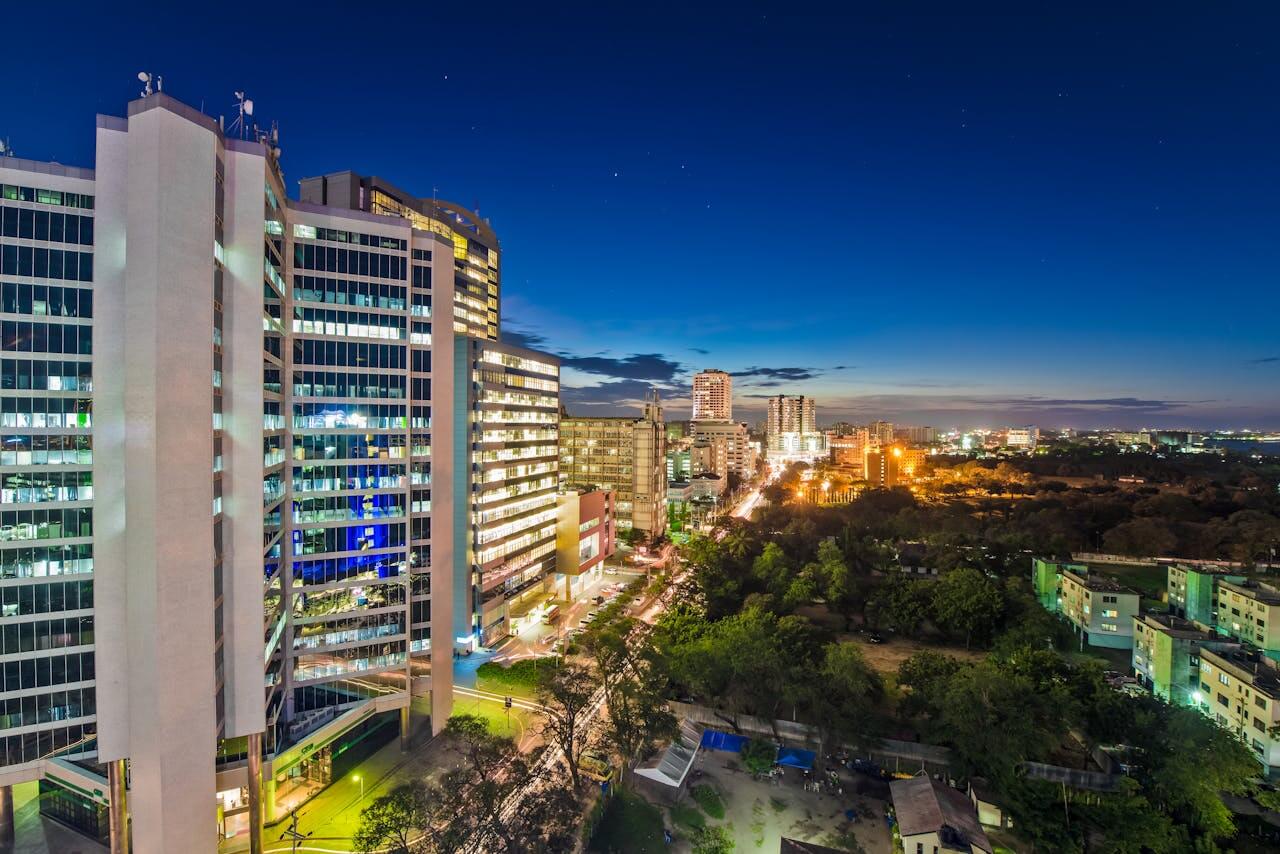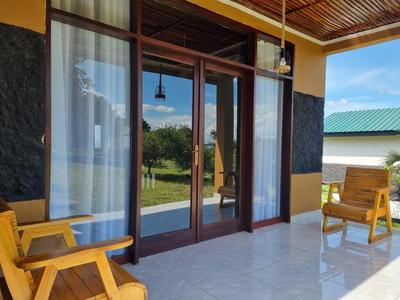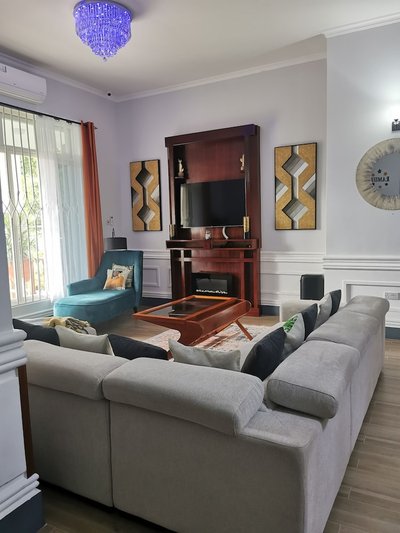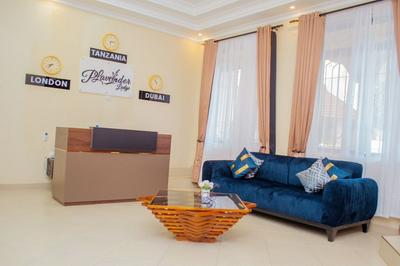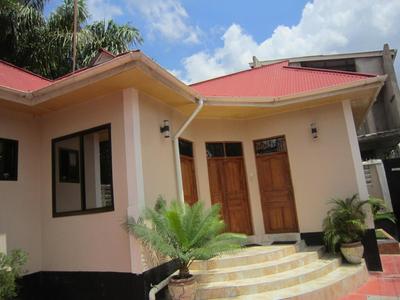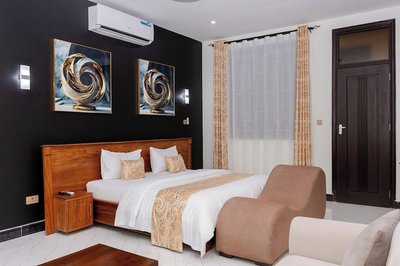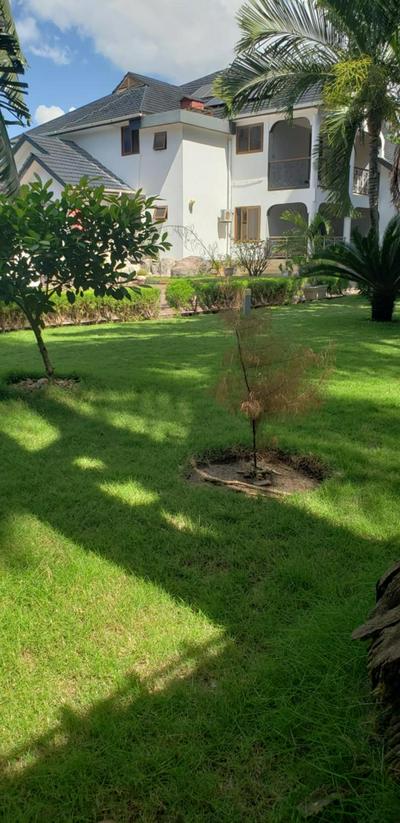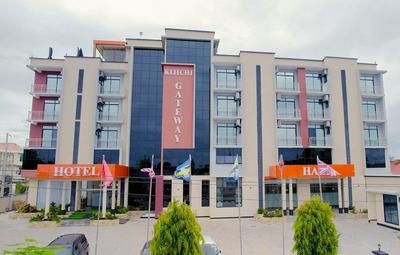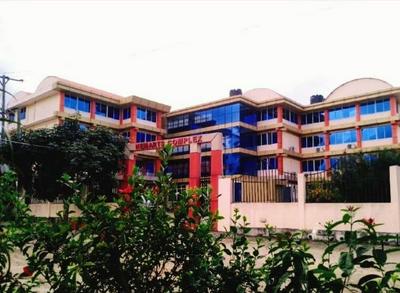When to visit Dar es Salaam?
Dar es Salaam experiences a tropical climate, characterized by warmth and humidity throughout the year. The best time to visit the city is during the dry season, which runs from June to October. These months are marked by pleasant temperatures and minimal rainfall, making it ideal for outdoor activities and sightseeing.
In summer, from December to February, the city can be hot and humid, with temperatures frequently exceeding 30°C (86°F). However, this period also offers vibrant cultural experiences, as several local events take place. If you don’t mind some heat, this can be a great time to explore the bustling markets of Kariakoo or enjoy the beach vibes of Coco Beach.
During the spring months of March to May, heavy rains are common, especially in April and May. While this is considered the low tourist season, visitors who don’t mind the rain can still enjoy lush landscapes and fewer crowds at popular attractions. The rain also provides a much-needed respite from the heat, and you might catch some unique cultural festivities during this time.
Overall, the dry season is the most favorable, but each season brings its unique charm, and visitors can find something special regardless of when they visit.
How to get to Dar es Salaam?
Getting to Dar es Salaam can be a smooth experience, thanks to its well-connected transport options. The main entry point is Julius Nyerere International Airport (DAR), located about 13 kilometers (8 miles) from the city center. This airport serves both international flights and domestic routes, making it a convenient hub for travelers.
Besides air travel, you can reach Dar es Salaam by bus. Many long-distance buses connect from various cities across Tanzania such as Dodoma, Arusha, and Mwanza. The journeys can vary from a few hours to overnight trips, depending on the departure point, and you can expect to spend between 20,000 and 50,000 TZS on bus tickets.
If you prefer a more leisurely approach, taking the train can be an option. The Tanzania Railway Corporation operates regular routes from several major cities with scenic views along the way, though travel times can be longer.
Driving is also viable, with well-maintained roads leading to Dar es Salaam. However, be cautious of local traffic norms and conditions. Once you're in the city, navigating by car can be a challenge due to congestion.
Tourist activities in Dar es Salaam
Dar es Salaam is a vibrant metropolis filled with diverse activities for every traveler. During the day, explore its beautiful beaches like Coco Beach or get lost in the local history at the National Museum and House of Culture. For nature lovers, the nearby Bongoyo Island is perfect for a day of snorkeling and enjoying pristine sandy shores.
Cultural attractions are plentiful, with the Village Museum offering intriguing insights into traditional Tanzanian lifestyles, while the Askari Monument provides a glimpse into the city’s colonial past. Don’t miss the bustling markets, particularly Kariakoo, where you can shop for local crafts and sample street food.
As the sun sets, the nightlife comes alive. Whether you’re in the mood for a relaxed evening at a seaside bar or ready to dance the night away at a local club, Dar es Salaam has something to cater to your desires. Various entertainment venues host live music, showcasing the best of Tanzanian talent.
Shopping options abound, from local handicrafts to modern boutiques. Take a stroll through Mwenge Woodcarvers Market for a taste of authentic Tanzanian craftsmanship.
Events and festivals
Dar es Salaam is known for its culturally rich festivals that highlight the vibrance of Tanzanian heritage. The year kicks off with the Swahili Cultural Festival in June, celebrating the fusion of local traditions through music, dance, and food in the heart of the city.
Prepare for the Dar es Salaam International Film Festival, usually held in September, where filmmakers and cinema lovers unite to appreciate local and international films in various genres.
The city's Independence Day celebration on December 9th showcases parades, performances, and local pride. Throughout the year, the Dar es Salaam Art and Craft Fair provides a unique opportunity to experience artisan markets and live demonstrations, usually in February.
Also noteworthy is the biennial Saba Saba Festival in July, focusing on local industry and commerce, offering a plethora of exhibitions and workshops. These events highlight the city’s dynamic spirit and are a must-witness for visitors wanting to dive deeper into the local culture.
Family and kids activities
Families visiting Dar es Salaam will find a rich array of activities to engage kids of all ages. Start with a visit to the Dar es Salaam Zoo, which offers an educational glimpse into various animal species native to Tanzania, making for a fun day out.
Parks such as the Botanical Gardens provide a serene environment for picnicking, with ample space for children to run around and explore the beautiful flora. The gardens also feature a playground, ensuring that younger kids can enjoy themselves as well.
For a unique experience, take a boat trip to Bongoyo Island where children can enjoy swimming and exploring the sandy beaches. There are also marine conservation activities designed for families to learn about ocean protection.
Monduli Museum, located within the city, offers interactive exhibits about Tanzanian heritage, providing both fun and educational experiences. The kid-friendly spaces are designed to spark curiosity and foster a love for learning.
What to see in Dar es Salaam?
Dar es Salaam is a city bursting with fascinating sites and attractions, making it a treasure trove for visitors. Key spots worth exploring include:
- Nnational Museum and House of Culture: Dive into Tanzania's rich history and cultural artifacts that showcase the nation's journey.
- Askari Monument: A symbol of the city’s colonial past, this statue commemorates soldiers who fought in World War I.
- Village Museum: Discover traditional Tanzanian culture through engaging exhibits and stunning craftsmanship.
- Coco Beach: A popular spot among locals and visitors, ideal for sunbathing and enjoying seaside activities.
- Bongoyo Island: A short boat ride away, this island offers pristine beaches and snorkeling opportunities.
- Kariakoo Market: Experience the hustle and bustle of local shopping, filled with spices, textiles, and fresh produce.
- Mwenge Woodcarvers Market: Home to a collection of vibrant crafts and woodwork, supporting local artisans.
Each attraction presents a unique slice of life in Dar es Salaam and shouldn't be missed by any traveler.
Accommodation in Dar es Salaam
Dar es Salaam offers a diverse range of accommodation options, catering to every budget and preference. From luxurious hotels to cozy guesthouses, there’s something for every traveler.
Luxury seekers might prefer the Serena Hotel or Hyatt Regency, both offering top-class amenities and beautiful views of the Indian Ocean. These hotels provide upscale dining, spas, and easy access to local attractions.
If you're on a tighter budget, hostels and guesthouses such as The Backpackers or Dar Guest House offer affordable stays with a lively atmosphere. Many of these options are strategically located, making it easy to explore the nearby sights.
For a unique experience, consider boutique hotels in waterfront locations that provide a charming ambiance and personalized service.
The city’s neighborhoods also play a vital role in accommodation choices. Areas like Oyster Bay are known for high-end resorts, while places close to the city center can offer convenient access to markets and cultural hubs.
Important numbers and information
- Emergency Numbers: Police: 112, Ambulance: 999, Fire: 998
- Tourist Information Centers: Located at Julius Nyerere International Airport and the city center
- Main Hospitals: Muhimbili National Hospital, Amana Hospital
- Airport Contact: Julius Nyerere International Airport: +255 22 211 5050
- Public Transport Info: Buses can be accessed via various local apps; inquire at your hotel for current schedules.
- Taxi Apps: Uber and Bolt operate in Dar es Salaam for your convenience.
- Currency: Tanzanian Shilling (TZS) – Credit cards are accepted in most hotels and larger restaurants but cash is preferable in markets.
Where to eat?
Dar es Salaam is a food lover's paradise, offering a melting pot of flavors and culinary experiences. Local cuisine primarily features fresh seafood, tropical fruits, and spices. Be sure to try traditional dishes like Ugali (maize porridge), Nyama Choma (grilled meat), and various fish preparations due to the city's coastal presence.
Neighborhoods like Kivukoni and Ocean Road are home to renowned seafood restaurants where you can enjoy meals with stunning ocean views. Street food is popular, too; head to local markets or night food stalls for local delights at budget-friendly prices.
Restaurants such as The Slipway offer a mix of international and local dishes, while Mama Ngina provide authentic Tanzanian flavors. Don’t miss out on the famous Zanzibar pizza, a savory fusion dish, available at street corners across the city.
Expect to budget around 10,000 to 25,000 TZS for a local meal, while dining in more upscale restaurants can range from 30,000 to 60,000 TZS or more.
Nightlife – where to go out?
Dar es Salaam boasts an energetic nightlife scene that attracts both locals and tourists. Once the sun sets, the city transforms into a lively hub with clubs, bars, and entertainment venues offering a mix of activities. Popular neighborhoods for nightlife include Sea View and Kivukoni, where numerous venues spill onto the vibrant streets.
If you’re after a laid-back atmosphere, check out Q-Bar, known for its rooftop ambiance and craft cocktails. For those seeking dance music, Club Bilicanas is a must-visit, offering a lively environment with local DJs spinning tunes that get everyone on their feet.
Another great spot is The Level, a popular nightclub featuring multiple dance floors and themed nights—always buzzing with energy. You can also enjoy live music at venues like Trust Lounge, which frequently hosts local talent.
In general, Dar es Salaam's nightlife is an inviting mix of casual and upscale venues, ensuring every night out can be unique and memorable for anyone looking to experience the city’s culture.
Transport and taxis
Transport in Dar es Salaam offers numerous options for getting around, catering to both locals and visitors. Public transportation is primarily through daladalas (minibuses), a cost-effective way to navigate the city. A single fare typically ranges from 400 to 1,000 TZS depending on the distance, and though they can be crowded, they provide a unique local experience.
Taxis are also widely available. While traditional taxis can be hailed on the street, using apps like Uber or Bolt ensures transparency in pricing and safety. Fares vary, but expect to pay around 10,000 to 20,000 TZS for short trips.
For a more organized approach, consider using private taxi services for airport transfers or guided tours, which can be arranged through hotels or local agencies.
When using public transport, buy tickets from designated vendors and be wary of your possessions in crowded settings. Overall, getting around Dar es Salaam is straightforward, with options suitable for various preferences.
Parking and public garages
Driving in Dar es Salaam can be challenging, especially during peak hours. The city has various parking zones, with both street parking and public garages available. You'll find designated parking areas at shopping centers and popular attractions, usually with attendants for security.
Parking fees generally range from 500 to 2,000 TZS per hour, depending on the location. It's advisable to park in well-lit and busy areas for added safety. Some hotels offer on-site parking as part of their service, which can be the best option if you're staying centrally.
Always remember to pay parking meters where applicable to avoid fines. For longer stays, inquire about monthly rates at public garages that can provide savings.
Surroundings of Dar es Salaam
Surrounding Dar es Salaam are beautiful spots perfect for day trips, offering a refreshing escape from the city's hustle. One popular destination is the beautiful Mikumi National Park, around 280 kilometers (175 miles) to the west, where you can go on safaris to spot elephants, lions, and other wildlife.
Another great option is the paradisiacal Zanzibar Island, just a short ferry ride away from the mainland. Known for its stunning beaches and rich history, a day exploring Stone Town or lounging on the beaches is a must.
If you prefer a unique natural setting, head to Saadani National Park, which is about a 2-hour drive north. Here, you'll find a remarkable blend of coastal and wildlife experiences, including seeing elephants by the Indian Ocean.
Last but not least, the stunning beaches of Kivukoni and Mbezi Beach are easily reachable for a day of sun and relaxation, perfect for families or those looking to unwind after exploring the city.
